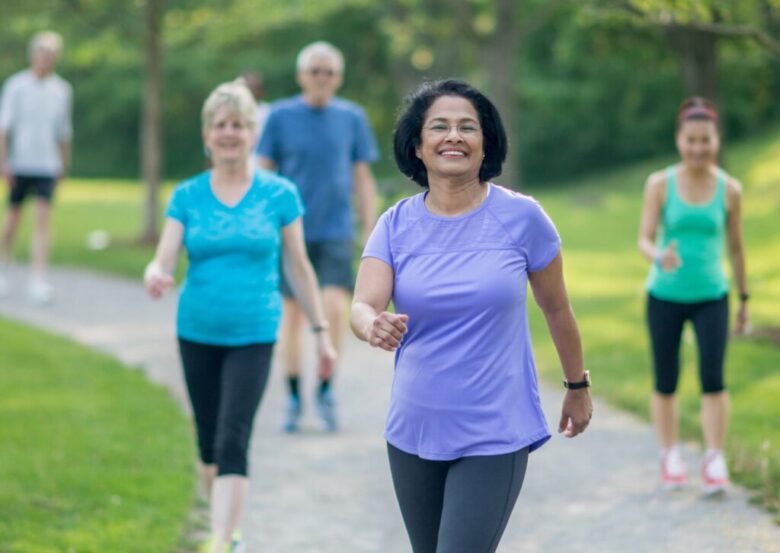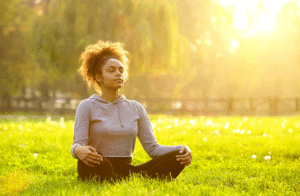Regular physical activity can improve your health and well-being. Exercise has many benefits that go beyond weight loss and muscle building. Consistent movement can improve your health and social life. This article examines the impact of physical activity and wellness in general, as well as how you can make it part of your daily life.
The Essence of Physical Exercise
Physical activity can be anything that makes your body work and burns calories. Physical activity can include structured workouts such as running, swimming, or weightlifting, but also everyday activities like gardening, walking, or vigorous house cleaning. It is important to keep your body moving regularly. This simple act stimulates biological processes that contribute to health and vitality. It is therefore a key pillar for a healthy and balanced life.
Physical Health Benefits
Regular exercise has a wide range of positive effects on your physical health. These benefits are well documented. Consistent exercise strengthens the heart, increasing its efficiency and decreasing your risk of cardiovascular diseases like heart attacks and strokes. Physical activity is also important for weight management, as it burns calories and boosts metabolism. Physical activity also helps to maintain healthy insulin and blood sugar levels, which reduces the risk of type 2 diabetes. Weight-bearing exercise can improve bone density and prevent loss of muscle, which are important for those who care about bone and muscle health.
Mental and Emotional Upliftment
Physical activity is strongly linked to mental health. Exercise releases endorphins, which are natural mood elevators that can increase feelings of happiness or reduce pain perception. The “runner’s high” can be triggered by any moderately intense activity. Regular exercise has been shown to reduce symptoms of anxiety and depression by increasing neural growth. The simple act of focusing your attention on the movement of your body can help you to reduce stress and clear your mind.
Immune System Boosting
Regular physical activity will help you maintain a strong immune system. Moderate exercise will help your body fight and detect illnesses more efficiently. This boost in circulation allows your immune cells to move more freely through your body and perform their jobs more efficiently. A consistent, moderate exercise routine can reduce your risk for common illnesses.
Social Engagement
Physical activity is a great way to connect with others. Joining a sports team, taking part in a group fitness class, or walking with a buddy can provide opportunities to meet others with similar interests. Social engagement can help combat loneliness and isolation, which are major risk factors for poor health. By fostering relationships through shared experiences, you can create a sense of community and support. This will add a social dimension to your journey towards wellness.
Make Activity a Habit
It’s not difficult to incorporate physical activity into daily life. Finding activities that you enjoy is the best way to ensure you stick with them. Begin with smaller, more manageable goals like walking for 15 minutes each day. Gradually increase your duration and intensity when you are comfortable. You can make sure you have time to exercise by scheduling it like any important appointment. When you are just getting started, consistency is more important than intensity.
The Path to Better Living
Regular physical activity is the cornerstone of living a healthy, fulfilling life. The benefits of physical activity are multi-faceted, touching all aspects of our lives. Physical activity not only strengthens our bodies but also sharpens our minds, boosts immune defenses, and enriches our social lives. You can invest in your health by incorporating movement into your daily routine. It will also help you feel more energetic and happier.
FAQs
1. How much physical exercise do I need each week?
Health experts recommend that healthy adults spread out 150 minutes of moderate-intensity aerobic activity each week or 75 minutes of vigorous-intensity aerobic activity. Include muscle-strengthening exercises on at least two days per week.
2. What is moderate-intensity exercise?
You can talk while doing moderate-intensity exercises. Brisk walking, water aerobics, cycling, or pushing a mower are all examples of moderate-intensity activities.
3. Do I have to join a gym in order to be physically active?
You do not require a membership to a gym. You can do many effective activities at home or outside with minimal equipment. You can stay active without using a gym by doing bodyweight exercises, dancing, jogging, and gardening.
4. How can I motivate myself to exercise regularly?
Track your progress, set realistic targets, and choose activities that you enjoy. Joining a group or working out with a buddy can make exercising more fun and provide accountability. Celebrate your progress.
5. Sleeping better with physical activity?
Regular physical activity can actually help you sleep better and faster. It’s best to avoid intense exercise before bedtime, as it may be stimulating and interfere with your sleep.




